The long-time “Dagwood” comic strip still features the office “water cooler” as the employee gathering place for office gossip. Running commentary about office life abounds, usually funny and often ironic. These days, the water cooler and employee lunchroom are out of bounds while employees are being asked to work from home, to minimize the spread of the coronavirus.
Since human beings are incredibly creative, the “water cooler” can now take different formats, but the effect of conversations still needs investigation. What is the talk like where you work? Do people put each other up or do they run each other down? You know, the way we talk to ourselves and to each other has a powerful effect on what we are able to accomplish.
In organizations where the talk is negative, where people gossip about each other and take every opportunity to complain and gripe about problems, and where people take a perverse kind of pride in shooting down each other’s ideas, productivity suffers enormously. Another comic strip, “Dilbert,” comes to mind, where employees (and their bosses) undermine each other with abandon.
In organizations like these examples, productivity isn’t the only thing that suffers. It feels just plain awful to work in an environment like this, doesn’t it? And it takes a tremendous toll on your energy, and even on your mental and physical well-being.
In highly successful organizations, it’s a different story. If you observe these companies, you will see innovation, risk-taking, and creativity everywhere you look. You will see people who feel personally accountable for the success of their co-workers as well as their own success. Success is a community goal, not just a personal one.
You will see people who feel like they are on the same team working toward a common goal, and you’ll hear it in the way they talk to each other. Players on a winning team help each other, respect each other, and build each other up. What’s more, their talk focuses not on problems, but on solutions.
As you take a look at your own organizations, the teams or committees you are a part of, what are the conversations like? Do they build up the group? If not, what could you do to change it?
Featured posts
May 16, 2023
May 16, 2023
May 16, 2023





